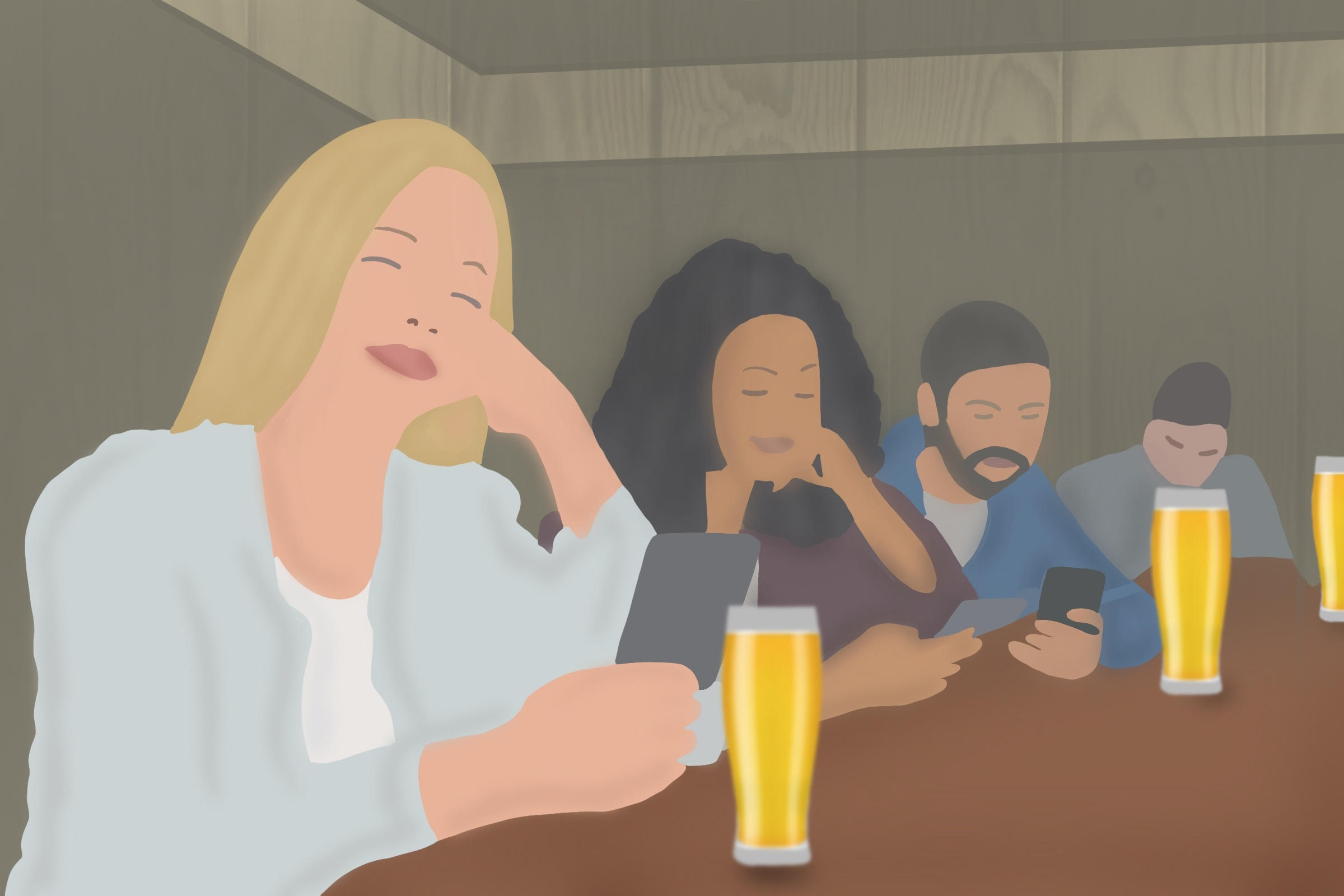So, why is this the case? The ultimate goal of online dating apps should be to function as a conduit in creating committed relationships, right? Wrong. The realm of online dating has become a multi-billion dollar industry — an industry that profits primarily off of user addiction, especially by keeping its users single. The way that the industry accomplishes this is twofold, relying on qualities of gamification and what psychologist Barry Schwartz refers to as the “paradox of choice.”
The presence of the choice paradox in online dating is perhaps best understood through the analogy of online shopping. Studies have shown that as shoppers are exposed to more options for potential purchases, they are paradoxically less likely to be satisfied with their ultimate decision. As our brains become inundated with a variety of choices, we often experience choice paralysis: An anxiety-induced state that prevents us from making a resounding decision.
On Tinder, the user’s experience of choice overload has become a frequent occurrence. In the emergence of what some are calling “serial swipers,” many users can be seen displaying strong hesitations to commit to a singular option due to fears of missing out on a potentially better one.
The infiltration of the choice paradox into the realm of relationships is especially dangerous. Unlike the case of online shopping, users aren’t choosing between products, they’re choosing between people. The resulting world of online dating has become a breeding ground for objectification, sexual harassment and insecurity, as choices are increasingly influenced by abundance and appearances rather than genuine compatibility.
The instant gratification offered by each ‘match’ causes the idea of exclusivity to appear unsettling, with many individuals remaining addicted to these apps even in committed relationships. Specifically, 30% of Tinder users are married, and another 12% are in relationships. Because of this, the online dating world has become a hotbed for cheating and noncommittal sex. Users find themselves immersed in an endless, twisted game, where matches and hookups function as points to keep score.



That's cringe and no doubt profit driven. It doesn't appear like that's the focus of the article though. I want to be real slow in criticizing the format because the article ends like, "So, do these claims that the “dating apocalypse” is upon us actually hold any validity? The answer is complicated. While the rise of social media and online dating apps have perpetuated a strong hook-up culture, a growing awareness of the toxicity of these platforms has also created an equally strong counter-movement." Like there was some preferable culture that needs protection and preservation against the ills of young people shirking off the responsibility of chastity for the good of society. Their counter-movement is no doubt some kind of cringefest full of Toilet Paper USA chuds. It'd be neat if the state seized Tinder and washed it of all the profit seeking, but it seems so shitty to get rid of the format of swiping and matching for the "good" of a society that I fucking despise anyway.
I think we're coming from the same place overall. I think the format is worthy of criticism but the idea that dating apps are the dating apocalypse is complete nonsense. What I think the criticism in this article really does is paper over the fact that the physical environment people live in is completely devoid of joy. Completely unwalkable. No shade. No community culture. I would agree that much of the criticism of the format is misplaced.
I agree. I hope you wouldn't think so little of me to otherwise defend a billion dollar company, comrade. Axiomatically it is bad. The environment is made shit for the sake of private enterprise. May God damn America. But a meat market of consenting adults belongs in the same category as a casino or a distillery to me. I just want you to be able to take the train there instead of a car
I think your position is very understandable. I do think a strong element in this criticism is coming from the conservative right, and it is important for leftists to be aware their positioning is attempting to set the tone of the issue for the mainstream.